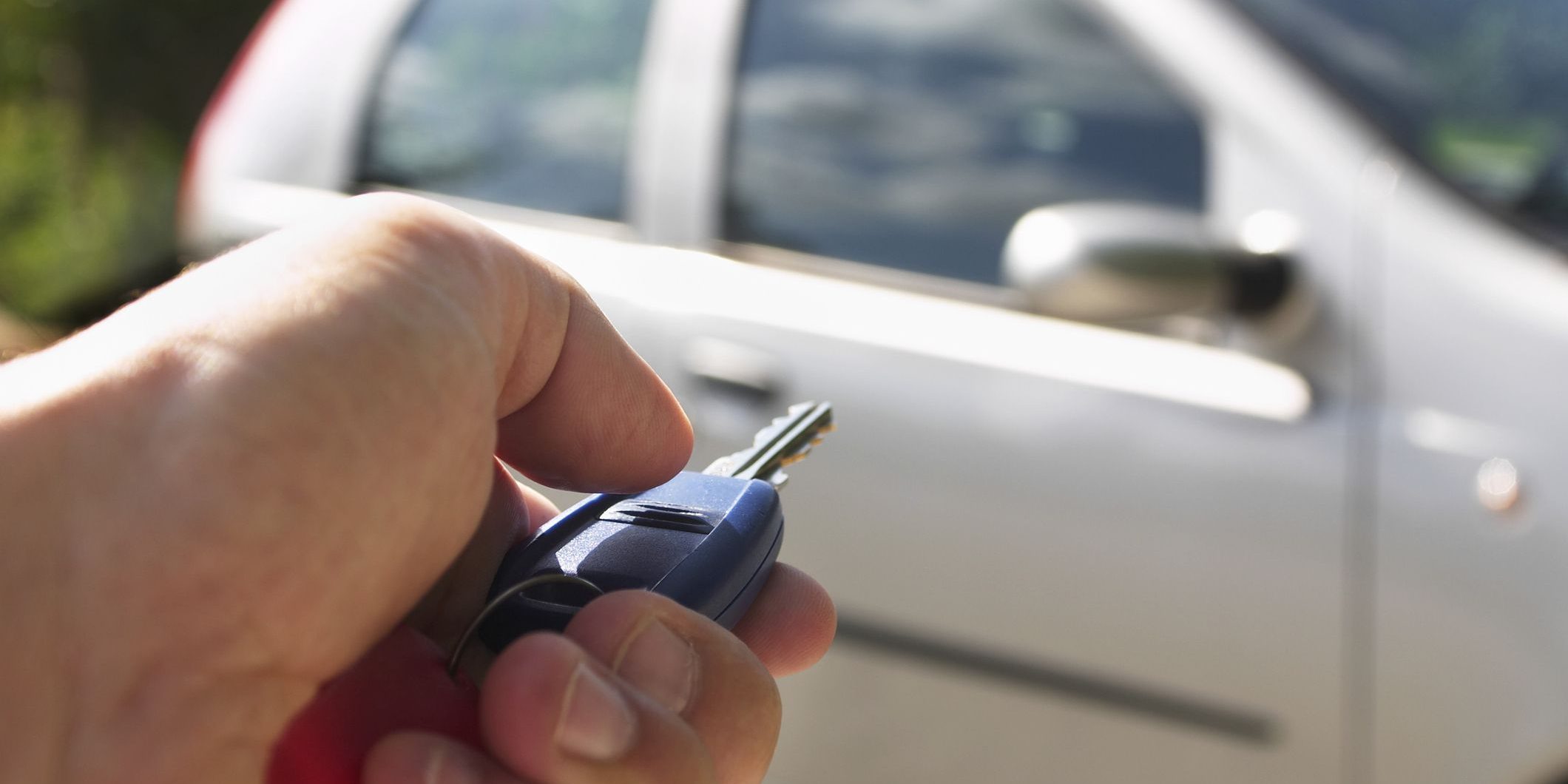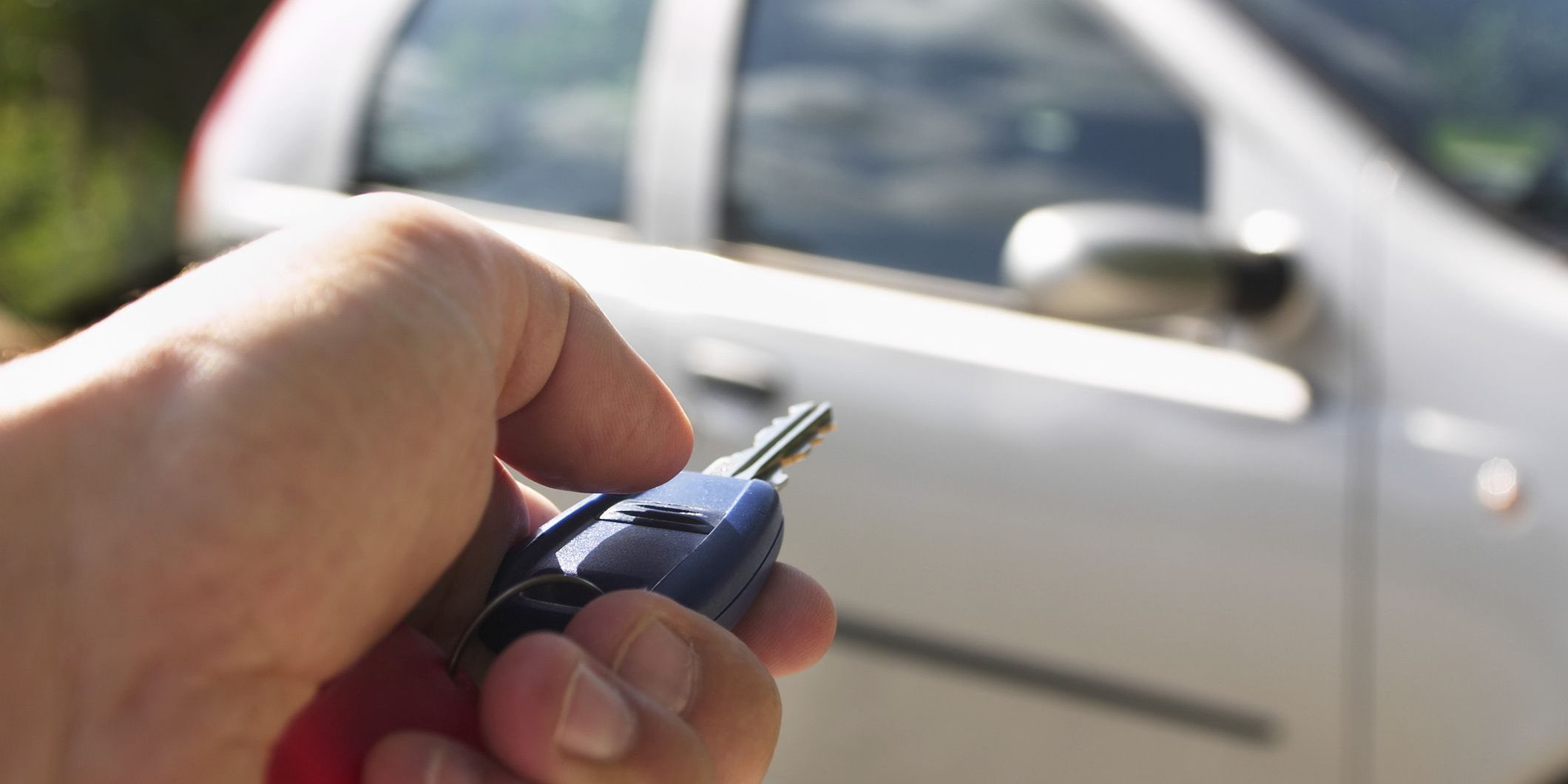How To Find Car Keys


Introduction
In this guide, we will explore effective ways to locate misplaced car keys. Losing keys can be stressful and time-consuming. However, there are simple and practical methods to help you find them quickly. Let’s dive into the details.
One of the most efficient methods is retracing your steps. Start by thinking about where you last had your keys and following your movements until you reach your current location. You could also search commonly frequented areas such as your purse, pockets, or drawers for missing keys.
Moreover, utilising technology can make finding lost items easier than ever before. Some smartphones have a ‘Find My Device’ function that provides GPS tracking to pinpoint their location. Additionally, smart home assistants like Google Home or Alexa can sound off alarms to help locate nearby devices.
It’s typical to misplace items from time to time, and even renowned individuals are not immune to this common problem. For instance, Bill Gates once misplaced his car keys during an important meeting at Microsoft headquarters but was eventually able to find them with the help of the security team.
Unless you’re the type to hide your car keys in a potted plant or the fridge, searching for obvious places should be your first port of call.
Search the Obvious Places
When attempting to locate lost car keys, it may be beneficial to start with areas that are easily noticeable or accessible. Begin by examining surfaces where you may have placed them, such as tables, countertops, or other obvious spots. Additionally, check pockets, handbags, and other commonly used bags for your keys. Look in nearby drawers, cabinets, or shelves that are in plain sight, as the keys may have been accidentally misplaced there.
It may seem like an obvious tip, but searching the most noticeable areas first can help save a lot of time and effort in the long run. It can be frustrating to conduct a more thorough search only to find out that the keys were hidden in plain sight all along. Checking these areas can yield quicker results and lead to the successful recovery of your lost keys.
In your search for car keys, be sure to check less-obvious areas as well. The keys could have been accidentally left in rooms or spaces where you don’t frequently visit or haven’t looked in a long time. It’s important to cast a wide nett when searching for lost items to ensure you have exhausted all potential locations for the keys.
There is a famous story of a man who searched his entire house, including cabinets, drawers, and shelves, for his lost car keys. After hours of searching, he finally found the keys in a potted plant. While it may be an extreme case, it serves as a reminder to check unexpected locations when trying to locate lost items. Your pockets and purse may be a black hole, but don’t worry; your car keys are in there somewhere.
Pockets and Purses
The Importance of Accessible Storage Spaces
Keeping your belongings safe and secure is essential. There are multiple storage spaces that we use daily to store our essentials, like wallets, mobile phones, and keys. These storage spaces include pockets and bags.
Here are six important points to remember about accessible storage spaces:
- Pockets and purses make it easier for you to access your belongings at any time.
- Make sure the storage space you use is easily accessible to you.
- Clean out your purse or pockets regularly to avoid misplacing essential items.
- Avoid overloading the pockets, as they can tear quickly or create discomfort in the body.
- Stay mindful of pickpockets when using public transportation or crowded places.
- Use additional security measures such as zippers, buckles, or compartments for added protection.
It is important to keep these points in mind whenever you use a storage space that includes pockets and purses. These precautions help keep your essentials safe from theft, damage, or loss.
Pro Tip: Carry only essential items that you require daily to reduce clutter in your bags and pockets while improving accessibility.
In the Car
During your search, don’t forget to check the compartments and storage spaces within your vehicle. These areas can often be overlooked, but they can hold valuable items or clues.
The glove compartment is an obvious place to start, and it should be thoroughly searched for any relevant documents or small items. Additionally, the centre console, under-seat storage, and trunk should also be checked for any potential evidence.
It’s important to pay attention to even the smallest details during your search, such as crumbs on the seats or unfamiliar scents in the car. These could potentially lead to new leads or information.
Some suggestions for a more efficient search include using gloves to avoid contaminating evidence, bringing proper lighting and tools, and taking photos of anything that seems relevant. By following these tips and fully searching every nook and cranny of your car, you may just find what you’re looking for.
On the Ground
Exploring the Nearby Terrain
When searching for answers or solutions, it’s often best to start by examining your immediate surroundings. This is especially true in situations where physical proximity or current context play a vital role. Before searching far and wide, take a look at what’s right in front of you. This approach can save time and effort while also providing invaluable insights.
For instance, if you’re trying to locate a missing item, begin by retracing your steps and checking areas where you’ve recently been. In a business context, when troubleshooting an operational problem, observe the workflow at ground level before delving into more complex systems. What may seem obvious could be easily missed when overlooking everyday occurrences.
A closer look at the surrounding environment can reveal significant details that may have been overlooked earlier. By taking an on-the-ground approach, one can discover nuances and minor developments that would otherwise be glossed over.
Pro Tip: Start any investigation by seeking out information that is close by before moving on to other sources—the seemingly nominal details might provide essential clues!
Ask Around
When searching for lost car keys, one efficient method is to ask people in your surroundings if they have seen them. This can include family, friends, colleagues, or even neighbours. By using this method, you broaden the search area, increasing the likelihood of finding your keys. Simply asking, ‘Have you seen my keys?‘ in a polite manner can help initiate the search process.
To increase the possibility of success, try to provide them with a brief description of the keys or where and when you last had them. Be sure to thank each person for their attempt to assist you, even if they couldn’t help. Moreover, if you are at a location with a reception or front desk, don’t hesitate to ask if someone has handed in any misplaced keys.
If you are looking for the keys in a public area, such as a parking lot or a building, ask the security guard for help. Describe the keys and the specific area you visited to help them understand where to look. As a result, they can be on the lookout for any keys that match the description. This can vastly expedite the search process.
One way to avoid losing keys is to always have a designated spot to store them when not in use, such as a key holder or a specific pocket in your bag. Always remember to check these places before leaving or entering a location. By developing a habit of safeguarding your keys, you reduce the likelihood of losing them.
Family and Friends
Seeking advice from people within your close circle can be valuable when making important decisions. Utilising the knowledge and experiences of those closest to you can help provide insight and perspective. Consider reaching out to those within your social network, including immediate family members or trusted friends. They may offer unique and relevant perspectives that could help inform your decision-making process.
When approaching this step, it’s essential to ensure that your chosen individuals possess a level of objectivity. People who are too emotionally invested in your situation may not be entirely impartial, skewing their advice towards personal biases rather than objective analysis.
In addition, consider exploring the possibility of seeking advice from acquaintances who have faced similar situations before—you may benefit from their own experiences. Keep in mind that each individual’s circumstances are unique and must be approached accordingly.
One suggestion is to begin the conversation by explaining your dilemma openly and honestly, without bias or prejudice. This approach allows for a clearer understanding of the situation at hand, providing others with relevant facts necessary for offering valuable feedback.
Another suggestion is to keep an open mind, remaining receptive to potential solutions or viewpoints different from your own. Remember that seeking external counsel does not mean you need to follow suit; however, it offers a fresh perspective conducive to effective problem-solving skills.
In summary, engaging with those closest to you can offer valuable insights into your problem-solving process; however, ensuring an unbiased opinion is crucial when seeking out advice. Consider keeping an open mind and being receptive to alternative views while remaining honest and transparent about your situation.
Living next to your neighbours is like playing the lottery—you never know what kind of crazy you’re going to get.
Neighbours
Asking Around
Curious to know more about your surrounding area? People living nearby can offer valuable insights into the community. Don’t hesitate to speak with your acquaintances and nearby residents.
Gossip Network
Neighbourhoods are typically interconnected, creating a delicate network of friendly chatter. A neighbour’s experiences or stories could be useful for you to understand how things work in the area. Everyone has a story to tell, and it doesn’t hurt to ask around.
Unforeseen Benefits
Proactively communicating with neighbours leads to opportunities that one may not expect, such as collaborating on projects like community gardens or neighbourhood watch programmes. Exchanging knowledge is an extension of human curiosity and builds interpersonal relationships in the process.
A Historical Example
Looking back at history, communities used local grapevines or town criers to exchange information before the Internet age. Even now, people tend to rely on word-of-mouth communication when it comes to finding useful information about their neighbourhood and beyond.
Use Technology
Technology can assist in finding lost car keys through various methods. Utilising GPS tracking devices can determine the location of the lost keys. Additionally, key locator devices can be attached to the keys and triggered via a smartphone app to produce an audible sound, leading the owner to the keys. Finally, some cars have built-in systems that can locate the keys using sensors and alert the owner. These methods can decrease the likelihood of permanently losing car keys.
When searching for lost car keys, technology can be a useful tool. GPS trackers can pinpoint the exact location of the keys. Key locator devices can emit an audible sound to guide the owner to the keys. Built-in systems in some vehicles use sensors to locate keys. By utilising these technologies, finding lost keys can be a much easier process.
It’s important to note that these methods may not always be foolproof, as some factors may affect their effectiveness. However, combining different technologies can increase the chances of finding lost keys. One may also consider investing in a keyless entry or keeping a spare set of keys in a safe place to avoid future inconvenience.
Pro Tip: Always keep track of where keys are placed to prevent them from getting lost in the first place. Consider designating a specific spot for keys and making a habit of placing them there after use.
Key Finder Devices
Key locating tools have made life much easier, especially when we’re in a hurry! Here are a few ways these devices can assist you:
- Attach the device to your keys or remote, and activate it using an app on your smartphone
- The device will beep or light up if you lose your keys, alerting you to their location.
- You can use the app to locate the attached device with pinpoint accuracy.
- If your phone is lost, pressing a button on the key finder will make it ring even if it’s in silent mode
- Spend less time searching for lost items since key finders save time and prevent stress.
- Some key finders include additional features, such as finding lost wallets or tracking pets!
Moreover, many key locator tools feature customizable ringtones and vibration patterns. You may also opt for Bluetooth- or GPS-enabled devices. A final pro tip is to keep extra batteries handy in case of emergencies.
Phone Apps
Mobile Applications
Mobile applications, commonly known as apps, have become an essential part of our lives. These small software programmes can be downloaded onto smartphones and help users perform tasks or access information quickly and conveniently.
- Productivity: Numerous productivity apps allow users to organise their work, manage tasks, and schedule events.
- Entertainment: Apps for entertainment can include games, social media platforms, and streaming services to watch movies and shows.
- Health & Fitness: Apps for health and fitness help users track their progress, set goals, and get personalised workout plans.
Thanks to advances in technology, there are now millions of mobile applications available in various app stores. They offer unique features to cater to different needs based on the user’s interests, demographics, or location.
Mobile application usage has increased dramatically in recent years due to its ease of use. Statistics show that smartphone users spend roughly 90% of their screen time using apps instead of browsing the internet. That’s remarkable!
A study by App Annie found out that as of 2021 Q2 worldwide total app spending rose from $50 billion last year in the same quarter to $64 billion—a year-on-year growth rate of 25%.
Call a Locksmith
If you find yourself in a situation where your car keys are lost, calling a locksmith can be a helpful solution. Locksmiths possess the skills and tools necessary to open your car without causing any damage and can also provide new keys. Additionally, they typically offer 24-hour emergency services, making them an excellent option if you are in a bind. However, it’s crucial to ensure that the locksmith you select is trustworthy and reputable.
When choosing a locksmith, look for one who is licenced and insured. Additionally, read reviews and ask for recommendations from friends and family to ensure their reliability. Once you’ve found a locksmith, be prepared to provide them with the make and model of your vehicle, your location, and any other necessary information. It’s also essential to ask about pricing upfront, as some locksmiths may charge additional fees for emergency services or certain types of vehicles.
A reputable locksmith can be a lifesaver when it comes to finding lost car keys. However, if you’re looking for a more budget-friendly solution, consider retracing your steps, checking your pockets and bags, and reaching out to any places you visited before misplacing your keys. Additionally, newer car models may have a spare key hidden inside the car or offer the option to use a smartphone app to unlock the vehicle. Knowing your options can be a useful tool for retrieving lost car keys.
Locksmith Services
If you find yourself in a troublesome lock-related situation, don’t hesitate to call for professional assistance. A locksmith service provider can cater to various needs, including lock installation, repair, and replacement for residential and commercial sectors.
If you’re locked out of your home or car, a skilled locksmith can promptly come to your rescue with efficient techniques such as lock-picking or key-cutting. Rekeying services are another valuable option where the existing locks can be altered without being replaced entirely. Additionally, locksmiths also offer services related to access control systems and security cameras.
It may interest you that some locksmiths specialise in forensic investigations related to criminal cases involving locks. They can use their expertise in examining tampered locks or keys as evidence in legal litigation proceedings.
Once, a man lost his keys during an unexpected visit to a foreign land. He contacted a local locksmith service provider, who arrived within minutes of the request. The expert resolved the issue through non-destructive methods and didn’t charge any extra fees, despite it being an emergency. This incident highlights the professionalism and reliability of trained locksmiths who can assist people in unforeseen situations effectively.
Cost
When it comes to the expense of calling a locksmith, prices will vary depending on several factors. These can include the time of day or night, how far the locksmith needs to travel, and the type of lock involved. It’s best to confirm pricing upfront with the locksmith before they arrive.
Additionally, if you require assistance outside normal business hours, be prepared for potentially higher costs. Emergency call-out fees can also apply, and locksmiths may charge more for weekend or public holiday work.
It’s important to remember that seeking out a cheap locksmith in an emergency may not always be the best idea. Opting for a lower-cost provider could mean compromising on quality or safety measures, which is not worth risking the security of your property or personal safety.
To avoid unexpected costs, consider asking around for recommendations and researching trusted local locksmiths ahead of time. Additionally, maintaining regular maintenance on your locks to keep them in good condition can help reduce expenses in the long run.
Prevention Tips
Losing car keys can be a frustrating experience. Here’s how to prevent it with simple tips:
- Designate a specific spot for your keys, and make it a habit to always place them there.
- Consider key locators that attach to your keychain and emit a sound when activated.
- Have a spare key made and keep it in a safe and easily accessible place.
- Be mindful of where you place your keys, especially in public places or while travelling.
- Use a key holder or lanyard to keep your keys secure and visible.
- Consider investing in KeyFinder technology that will help you locate your keys quickly and easily.
In addition, always carry a photocopy of your car registration and insurance documents with you in case you need to prove ownership and identity.
True Story: One of our readers shared how they once lost their car keys while on a road trip. Fortunately, they had a spare key in their luggage, kept in a secure and easily accessible spot. This saved them from being stranded in an unknown location and taught them the importance of always having a spare key.
By implementing these prevention tips, you can avoid the inconvenience and frustration of losing your car keys. When it comes to car keys, always have a spare on hand in case of emergencies, like accidentally locking your primary set in the car or losing them in a game of ‘hide and seek’ with your toddler.
Have Spare Keys
Spare Keys for Prevention
Having additional keys can protect you from unforeseeable circumstances. Here are some tips on maintaining extra keys:
- Ensure spare keys are in a secure location, only accessible by you or trusted individuals.
- Hide the keys in a well-concealed spot outside your home, and avoid common areas like under mats or flower pots.
- Have lockboxes installed that require codes to access the keys, and select complex codes that cannot be easily guessed.
- Give extra keys to a reliable neighbour or family member for safekeeping.
- Do not label spare keys with your name or address, as it may lead to unwanted attention.
- Consider investing in smart locks that allow keyless entry through electronic means.
In addition to these tips, remember to regularly check the location of your spare keys for any signs of tampering. Protecting yourself from foreseeable dangers is crucial to safeguarding yourself and your possessions.
“Once, a friend lost his key amidst an emergency, and we were forced to break into his apartment. It was a tedious process and could have been avoided with beforehand preparedness. Spare keys go a long way in preventing such unfavourable situations.”
Label Your Keys
Keys Labelling importance
Labelling your keys is an essential aspect of keeping them safe. Without labelling, you may quickly forget which key belongs to which lock, leading to frustrating and dangerous situations. Proper labelling helps you distinguish one key from another quickly, thereby reducing the chances of losing them.
Here are five points that explain the significance of key labels:
- It makes it easier for you to keep track of your keys.
- Ensures that you don’t misplace your keys easily.
- The right tag on a key helps identify it; it finds its way back to you if lost.
- Small tags on your keys help other people know where they belong when left behind or misplaced.
- Additionally, proper labelling can provide valuable information about locks’ master key systems in commercial or institutional settings.
It’s worth noting that label tags should have all the necessary information needed for identifying each key; avoid using irrelevant symbols, codes, or characters that won’t be easy to interpret.
Unique details
When marking your keys with labels, ensure they’re large enough and legible. Ensure the ink or paint used does not smudge quickly. When writing out what’s called repeat patterns, ensure that all duplicate sets are marked identically.
True story
One of my friends misplaced his house keys and couldn’t gain entry into his home as he hadn’t labelled his spare key previously. He ended up spending a night at a nearby hotel rather than calling a locksmith, who would have charged more had he found himself stuck during odd hours.
Keep Your Keys in a Designated Place
Keeping your keys in a dedicated location is crucial for preventing theft or loss.
- Choose a specific spot to keep your keys, whether it’s on a hook, in a tray, or a designated drawer.
- Make sure the location you choose is easily accessible and visible to you.
- Avoid putting your keys on countertops or other surfaces where they can be accidentally knocked over or grabbed by someone passing by.
- Consider installing a magnetic key holder to keep your keys secure and out of sight.
- Always return your keys to their designated place when not in use. This will help prevent misplacing them or losing them altogether.
- Teach everyone in your household about the importance of keeping keys in their designated location to ensure consistency and reduce the risk of misplaced keys.
It’s important to note that having a backup plan for when you can’t find or access your keys is also crucial. Consider having an extra set of keys with a trusted friend or family member, as well as having a spare hidden somewhere safe outside of your home.
To further increase security, consider investing in keyless entry systems such as keypad locks or smart lock systems. These options eliminate the need for physical keys and provide an added layer of protection against theft and break-ins.
How To Find Car Keys – Conclusion
With these tips, finding your lost car keys can be less stressful.
- Check the immediate area and retrace your steps.
- Consider calling a locksmith or using a tracking device.
- If all else fails, have a spare key made beforehand as a preventative measure.
Don’t let the fear of losing your keys stop you from enjoying life’s adventures!
How To Find Car Keys – Frequently Asked Questions
Q: I lost my car keys. What should I do?
A: The first step is to retrace your steps and look in places where you might have dropped your keys. Check your pockets, your bag, and the areas where you were recently. If you still can’t find them, consider contacting a locksmith or your car dealership for a replacement.
Q: Are there any tools to help me find my car keys?
A: Yes. There are Bluetooth trackers that you can attach to your keys and use your smartphone to locate them. Tile and TrackR are two popular options. You can also use a handheld metal detector to scan the areas where you think your keys might be.
Q: Can I use a keyfinder app on my phone?
A: Yes, there are several key finder apps available in both the App Store and Google Play. These apps use Bluetooth to connect to your lost keys and help you locate them. However, they work only if you have previously installed a trackable device to your keys.
Q: Can I file an insurance claim for lost car keys?
A: It depends on the type of insurance policy you have. Some auto insurance policies do have coverage for lost or stolen keys, but you need to check your policy coverage thoroughly. Some policies offer an option to pay an additional premium for key replacement coverage.
Q: Can I use my car’s VIN to get a replacement key?
A: Yes, you can. However, this process might take a bit of time, and you may need to show proof of ownership. You can contact your car dealership or a licensed locksmith to help you with the process.
Q: How can I prevent losing my car keys in the future?
A: To avoid losing your car keys, it’s a good idea to have a designated spot for them and return them to that spot when you are not using them. You can also get a keychain with a bright tag or a distinctive symbol for easy identification. Consider using a GPS tracker keychain which can show you where your keys are at all times.










